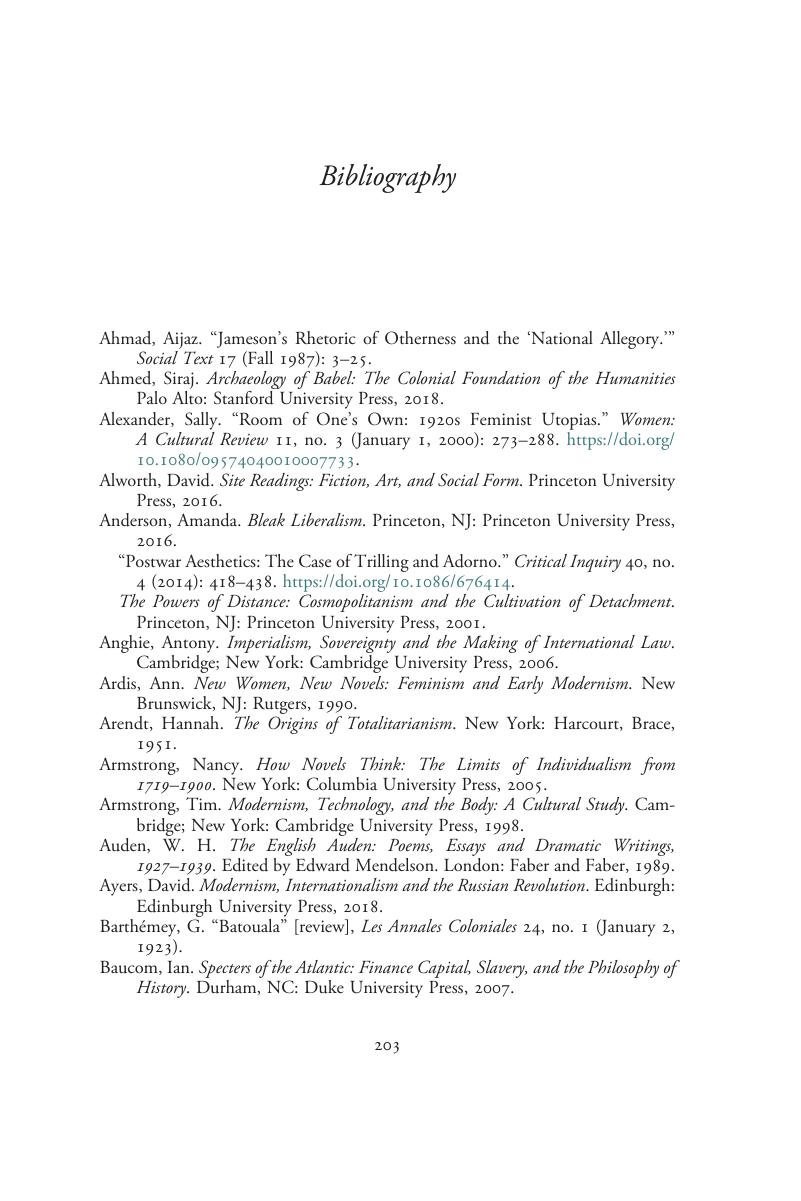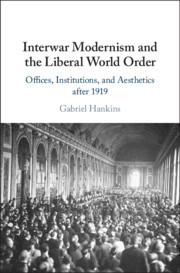Book contents
- Interwar Modernism and the Liberal World Order
- Interwar Modernism and the Liberal World Order
- Copyright page
- Contents
- Acknowledgements
- Introduction
- Chapter 1 The Queer Modernist Origins of Interwar Liberal Order
- Chapter 2 Friends and Enemies
- Chapter 3 The Artist as Clerk
- Chapter 4 Typewriter Fiction at the Secretariat
- Chapter 5 Black Modernist Internationalisms between the Wars
- Coda
- Notes
- Bibliography
- Index
- References
Bibliography
Published online by Cambridge University Press: 15 August 2019
- Interwar Modernism and the Liberal World Order
- Interwar Modernism and the Liberal World Order
- Copyright page
- Contents
- Acknowledgements
- Introduction
- Chapter 1 The Queer Modernist Origins of Interwar Liberal Order
- Chapter 2 Friends and Enemies
- Chapter 3 The Artist as Clerk
- Chapter 4 Typewriter Fiction at the Secretariat
- Chapter 5 Black Modernist Internationalisms between the Wars
- Coda
- Notes
- Bibliography
- Index
- References
Summary

- Type
- Chapter
- Information
- Interwar Modernism and the Liberal World OrderOffices, Institutions, and Aesthetics after 1919, pp. 203 - 218Publisher: Cambridge University PressPrint publication year: 2019

